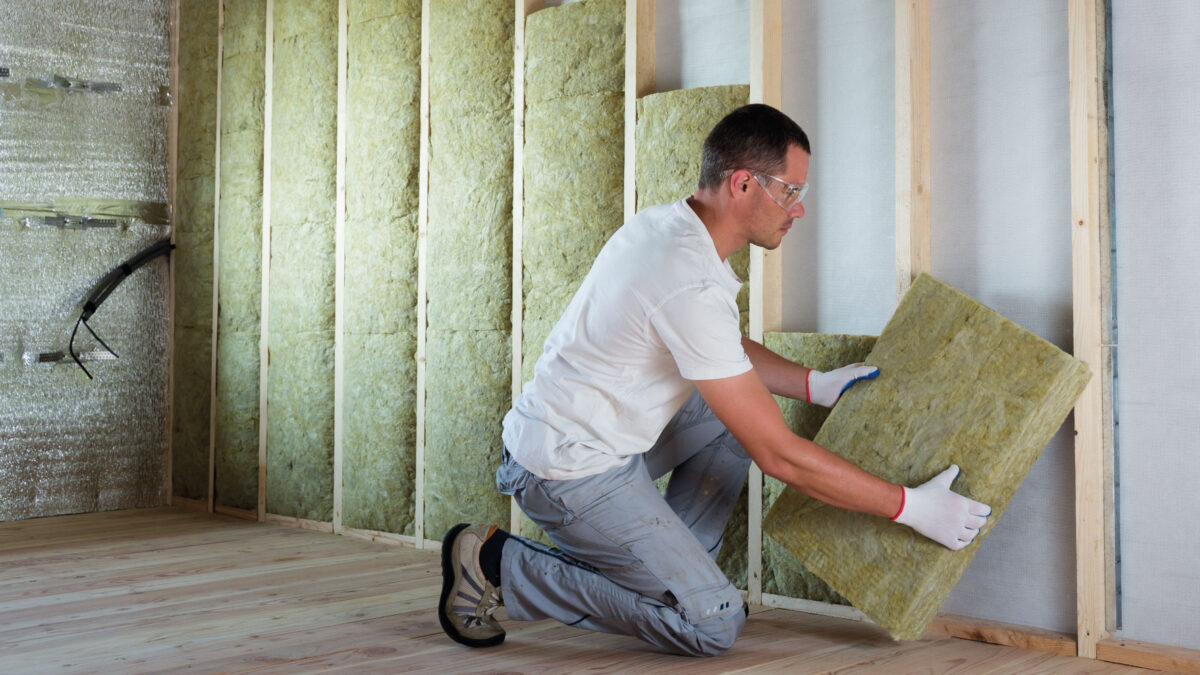Welcome to our blog post on how acoustic insulation can add value to your property! In this article, we will delve into the world of acoustic insulation and explore its importance in enhancing the value of your property.
We aim to provide a comprehensive guide to help you understand the benefits and considerations of acoustic insulation. So, grab a cup of coffee, sit back, and let’s get started!
What is Acoustic Insulation?
Acoustic insulation, or soundproofing, refers to the materials and techniques used to reduce noise transmission within a property. It works by absorbing, reflecting, or blocking sound waves, thereby minimising the impact of external noises on the interior environment. Common materials used for acoustic insulation include mineral wool, fibreglass, cellulose, and foam.
Benefits of Acoustic Insulationa
-
Noise Reduction
One of the primary benefits of acoustic insulation is noise reduction. Installing effective soundproofing materials can significantly reduce external noise levels, creating a peaceful living environment. Acoustic insulation can provide much-needed tranquillity in a busy city or near a noisy highway.
-
Privacy Enhancement
Acoustic insulation reduces noise from outside and prevents sound from travelling between rooms. This ensures privacy for occupants, allowing them to enjoy their personal space without being disturbed by conversations or activities in adjacent rooms. Soundproofing can enhance privacy and comfort, whether it’s a home office, a nursery, or a bedroom.
-
Health and Well-being
Reducing noise levels through acoustic insulation positively impacts mental health and overall well-being. Excessive exposure to noise can lead to stress, sleep disturbances, and even health issues such as high blood pressure. By creating a quieter environment, acoustic insulation promotes relaxation, better sleep quality, and improved overall health.
-
Energy Efficiency
Another advantage of acoustic insulation is its contribution to energy efficiency. Soundproofing materials also act as thermal insulators by reducing noise infiltration, and minimising heat loss or gain through walls, ceilings, and floors. This helps maintain a comfortable indoor temperature, reducing the need for excessive heating or cooling. Consequently, energy consumption and utility bills can be significantly reduced.
Adding Value to Your Property
-
Increased Demand
Properties with good acoustic insulation are highly sought after by homebuyers and tenants. People value the peace that soundproofing provides, especially in urban areas with high noise pollution. Investing in acoustic insulation can attract more potential buyers or renters, increasing the demand for your property.
-
Higher Property Value
Effective acoustic insulation can enhance the market value of your property. Potential buyers or renters are willing to pay a premium for a property with superior soundproofing, which provides a valuable and desirable feature. By investing in acoustic insulation, you can potentially increase the value of your property and maximise your return on investment.
-
Marketing Advantage
Promoting a property’s superior soundproofing can give you a marketing advantage. In your property listings or advertisements, highlight that your property is equipped with high-quality acoustic insulation. This can attract potential buyers or renters who prioritise peace and quiet, giving you an edge over competitors.
Types of Acoustic Insulation
-
Wall Insulation
Wall insulation is crucial for reducing noise transmission between rooms and from outside. Various types of wall insulation are available, including batts, blown-in insulation, and acoustic panels. Each type offers different benefits regarding sound absorption, ease of installation, and cost-effectiveness. Choose the option that best suits your needs and budget.
-
Ceiling/Floor Insulation
Insulating ceilings and floors is essential for minimising sound transfer between different levels within a property. Options such as resilient channels, acoustic underlayments, and suspended ceilings can greatly reduce impact noise and airborne sound. Consider the construction of your property and consult with professionals to determine the most suitable insulation method for your ceiling and floors.
Considerations for Installing Acoustic Insulation
-
DIY vs. Professional Installation
While some acoustic insulation projects can be tackled as DIY projects, others may require professional assistance. Homeowners can handle simple tasks such as installing foam panels or sealing gaps. However, more complex projects like insulating walls or ceilings may require specialised knowledge and equipment. It is advisable to seek professional help for such tasks to ensure optimal results.
-
Budgeting and Return on Investment (ROI)
When considering acoustic insulation, it is essential to budget for the installation costs. The cost will vary depending on the size of your property, the materials used, and whether you choose DIY or professional installation. However, it is essential to remember that acoustic insulation offers long-term savings on energy bills and can increase the value of your property. Consider the return on investment and the potential benefits before making your decision.
Conclusion
Acoustic insulation is a valuable addition to any property, offering numerous benefits such as noise reduction, privacy enhancement, improved health and well-being, and energy efficiency. By investing in acoustic insulation, you can increase the value of your property and attract more potential buyers or renters. Remember to consider the different types of insulation, seek professional help when needed, and budget accordingly. We hope this article has provided valuable insights into acoustic insulation. If you have any further questions, feel free to contact us. Happy soundproofing!


